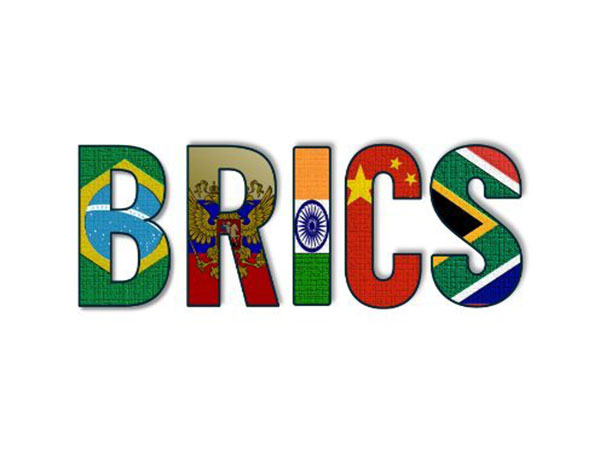
Islamabad: After a failed attempt last year, Pakistan has desperately tried to secure permanent membership in Brazil, Russia, India, China, and South Africa (BRICS). Reports indicate that Islamabad is engaging with member countries to seek support for its membership. Pakistan is also pursuing entry into the New Development Bank (NDB), an institution established by BRICS nations.
This could be a preliminary step to garner support for its BRICS membership. As anticipated, Pakistan has contacted its “iron brother” China to help generate consensus among the group’s members. However, Beijing views Islamabad’s request as a liability due to Pakistan’s severely weakened economy, which struggles even with multiple IMF loans and the forced postponement of Chinese debt payments.
Experts in Pakistan argue that membership would enable the country to strengthen ties with BRICS nations. Furthermore, it would allow Pakistan to apply greater pressure or present its case more authoritatively to Western nations, particularly the United States. Nonetheless, as a potential new member of BRICS, Pakistan is unlikely to contribute anything substantial to the group, primarily focusing on economic issues.
Islamabad’s primary goal in joining the group is to compete with India and secure financial benefits, such as loans, to revitalize its struggling economy. Pakistan’s inclusion in BRICS is likely to create further confusion and challenges for the member nations, as Islamabad is recognised for promoting anti-India rhetoric in various international blocs and regional organisations, including the South Asian Association for Regional Cooperation (SAARC) and the Organisation of Islamic Cooperation (OIC). In 2023, the original five BRICS members – Brazil, Russia, India, China, and South Africa – invited Iran, Egypt, Ethiopia, Saudi Arabia, and the United Arab Emirates (UAE) to join.
The 2024 summit is set to admit 13 additional countries, possibly as associates or “partner countries.” Over the years, the group has increasingly emphasized closer trade and financial collaboration with new members like the UAE, Iran, and Egypt, taking the lead from the original members.
Pakistan does not fit into the core agenda of the group. Instead, it tends to rely on the NDB and “BRICS plus” nations for financial development, trade, and energy sharing rather than act as a cooperative partner.
The BRICS countries function as an organisation aiming to deepen economic cooperation among their members and enhance their economic and political standing globally. Notably, as of 2023, the Gross Domestic Product (GDP) of the five original BRICS nations accounts for 31.5 percent of global GDP, compared to 30.7 percent for the G7 nations, which have been ranked among the world’s fastest-growing emerging market economies for years.
Furthermore, the group has established joint priorities, such as resolving regional issues, addressing financial and economic challenges like World Bank and International Monetary Fund (IMF) reforms, and creating the BRICS Interbank Cooperation Mechanism.
Although Pakistan’s economy is categorised as “developing,” it has lagged behind many other countries in recent years due to ongoing political instability and the interference of a powerful military establishment that adversely affects its economy. It ranks 24th in terms of GDP based on purchasing power parity (PPP) and 46th in terms of nominal GDP.
Given these weak economic indicators and the unstable political situation, Pakistan does not qualify for a permanent seat in BRICS. Furthermore, after the most recent expansion of the grouping in 2023, any future expansion will undergo heightened scrutiny. No member nation is likely to accept Pakistan’s request unless the economy improves, as it could otherwise become a significant financial burden for the group.
Reports suggest that, besides China, Pakistan has been urging Russia to accept its request for membership. During a recent visit by the Speaker of the Russian Federation Council, Valentina Matvienko, to Pakistan, President Asif Ali Zardari once again sought Russia’s support for Islamabad’s bid to join BRICS.
The official statement indicated that President Zardari requested Moscow’s backing for BRICS membership, which would greatly assist “Pakistan in enhancing its role in regional and global cooperation through the alliance.” Notably, Pakistan was not invited to the 16th BRICS summit in Kazan, Russia, held in October. Some experts claim that Pakistan’s outreach in global politics and economics is severely undermined and dampened by its domestic issues, particularly economic vulnerability and political uncertainty.
Pakistan’s subservience to the IMF’s conditionalities essentially forces it to align closely with the West. In November 2023, Pakistan formally applied to join BRICS. The official reason provided by the Pakistani side for this request was, “We believe that by joining BRICS, Pakistan can play an important role in advancing international cooperation and revitalizing inclusive multilateralism. We also hope that BRICS will consider Pakistan's request in line with its commitment to inclusive multilateralism.”
Following the withdrawal of U.S. troops from Afghanistan in August 2021, Pakistan has become a sidelined issue for most Western countries. It holds little military or economic significance for the Western community, particularly after its open adoption of a “pro-China” foreign policy.
Furthermore, through financial loans and repeated delays in debt payments, Pakistan has turned into a costly liability for international financial institutions. As it faces neglect from the West, Pakistan is increasingly leaning toward China.
After joining the Shanghai Cooperation Organization (SCO) with China’s help, Islamabad is trying to use the same format to become a BRICS member. It has not worked so far and may face increasing troubles in the future as Pakistan fails to maintain a balance in foreign policy between the West and China.
Three years after the U.S. withdrawal from Afghanistan, Pakistan has failed to bringthe United States back into a more active role in the region. More importantly, Pakistan’s economic situation remains extremely weak, and there are no signs of improvement soon. BRICS members may avoid adding an economic liability in the grouping to focus on core multilateralism and financial cooperation issues.